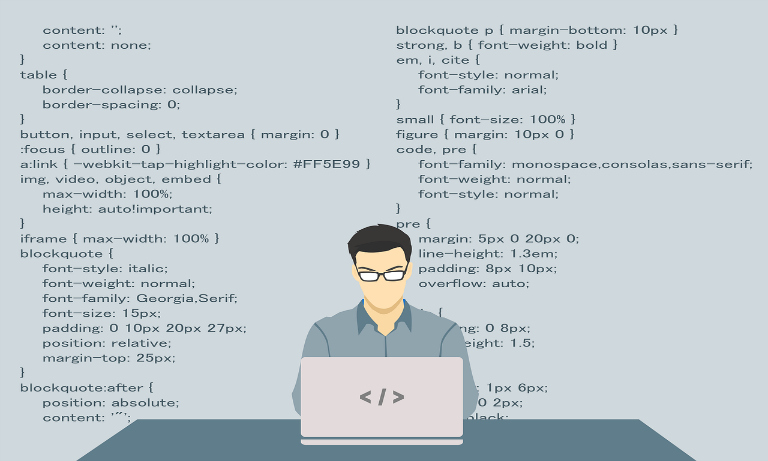 We’ve probably all seen the classic stereotype of a computer programmer in numerous TV shows films - but what is the reality?
We’ve probably all seen the classic stereotype of a computer programmer in numerous TV shows films - but what is the reality? This article looks at (and challenges) the myths surrounding the computer programmer and the job itself.
The stereotypical programmer
The stereotype of the computer programmer is of a technology-obsessed genius who has no desire to mingle with other people and is happy to sit in front of a computer all day writing millions of lines of code. This is simply not the reality.
The myths and the reality
1] Myth: Programming jobs are non-collaborative, boring, and poorly paid
Reality: The majority of programmer roles require working across many departments and therefore require a great deal of collaboration and teamwork.
When it comes to the role itself, by its nature, it will require a lot of repetition, but this does not necessarily mean it is boring – indeed it can be just as fulfilling to create something in the virtual world as in the physical one.
According to cwjobs, the average salary for a computer programmer is actually over £50,000 – this is almost twice the average salary in the UK.
2] Myth: Only geniuses/prodigies can be programmers
Reality: Developers are mostly ‘ordinary’ people with a passion for programming. Natural ability only gets you so far, and work ethic and discipline are what really determine success.
Programming is not as complicated as it may seem. It is comparable to writing meticulous instructions in a very precise and specific language.
3] Myth: It’s a young person’s ‘game’
Reality: As with many professions, in reality, it’s never too late to become a computer programmer.
4] Myth: You need a Computer Science degree
Reality: There are numerous coding ‘bootcamps’ offering viable alternative qualifications to those available from conventional schools and colleges.
5] Myth: All programmers are great at maths
Reality: Basic algebra should suffice for most developer/programmer roles. More advanced maths may be occasionally needed, but there are many plugins available that can run calculations automatically when embedded in the code.
6] Myth: There is a ‘best’ language to learn
Reality: There isn’t one programming language that is “better” than the others. Each has its own qualities and it really depends on what you need to do.
To be a top programmer, you need to be fluent in multiple languages. HTML and CSS are the most commonly used languages for websites, whilst Java is used for ‘front–end’ development and PHP is popular for ‘back-end’ development.
7] Myth: It’s easy to get job as a programmer or developer
Reality: There is a strong demand for programmers and developers, but that doesn’t mean that fantastic job offers will fall into your lap as soon as you have some qualifications.
Start with any companies within your existing network and then move on to job search sites. It is also worth creating your own website to showcase your skills.
Recruiters love this COMPLETE set of Accredited Recruitment & HR Training – View Training Brochure








